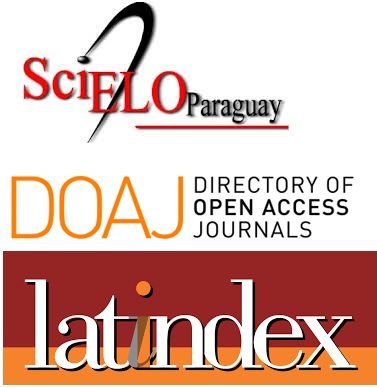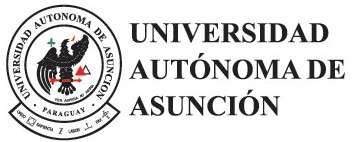Niveles de reflexión demostrados por estudiantes de pedagogía en inglés chilenos sobre el diseño y la implementación de una clase a distancia en contexto de pandemia COVID-19
Palabras clave:
reflexión, formación preparatoria de docentes, formación de profesores de inglés, educación a distancia, planificación de clase.Resumen
El objetivo general de este estudio es identificar los niveles de reflexión que evidencian estudiantes de pedagogía en inglés chilenos en práctica profesional sobre el diseño y la implementación de una clase a distancia en contexto de pandemia COVID-19. Este estudio utilizó, en primer lugar, la metodología cualitativa para describir la reflexión de los participantes y sus respectivos niveles. La recolección de estos datos implicó la narrativa ya que los informantes completaron un formulario escrito, aludiendo situaciones problemáticas o episodios críticos que experimentaron al diseñar o implementar una clase a distancia. Asimismo, se empleó la metodología cuantitativa para reconocer la frecuencia en que los informantes mencionaban, en su narrativa, determinados focos de reflexión sobre el diseño y la implementación de sus clases a distancia. Los resultados sugieren que los estudiantes de pedagogía en inglés en práctica profesional solo alcanzan un nivel descriptivo de reflexión. Sus focos de reflexión se relacionan con distintos elementos de la enseñanza remota, tales como las actividades, los recursos didácticos y el tiempo. Resulta necesario que la preparación profesional ayude a los futuros profesores de inglés a lograr un nivel conceptual/comparativo o crítico de reflexión. Esto en el marco de prácticas que integren enfoques comunicativos.
Citas
Aguilar-Cruz, P. J. y Medina, D. L. (2021). Pre-service English teachers’ perceptions of their online teaching practice during pandemic times. Propósitos y Representaciones: Revista de Psicología Educativa, 9.
http://dx.doi.org/10.20511/pyr2021.v9nSPE1.925
Al Abiky, W. B. (2021). Lessons learned for teacher education: Challenges of teaching online classes during COVID-19, what can pre-service teachers tell us? Revista Argentina de Clínica Psicológica, 30(2), 110-118.
Ann, O., Swanto, S. y AlSaqqaf, A. (2018). Pre-service ESL teachers engaging in reflective practice: Current observations and perceived challenges. Journal of Research, Policy & Practice of Teachers and Teacher Education, 8(2), 5-18. https://doi.org/10.37134/jrpptte.vol8.no2.2.2018
Asenjo, N. (2021). Marco para la reflexión docente: Una propuesta metodológica. Revista Realidad Educativa, 1(1), 35-62. https://doi.org/10.38123/rre.v1i1.87
Ashoori Tootkaboni, A. (2019). Teachers' beliefs and practices towards communicative language teaching in the expanding circle. Revista Signos, 52(100), 265-289. http://dx.doi.org/10.4067/S0718-09342019000200265
Barkhuizen, G., Benson, P. y Chik, A. (2014). Narrative inquiry in language teaching and learning research. Routledge.
Brandl, K. (2020). Communicative language teaching in action: Putting principles to work (2a ed.). Cognella.
Burhan-Horasanlı, E. y Ortaçtepe, D. (2016). Reflective practice-oriented online discussions: A study on EFL teachers’ reflection-on, in and for-action. Teaching and Teacher Education, 59, 372-382. https://doi.org/10.1016/j.tate.2016.07.002
Cheung, A. (2021). Synchronous online teaching, a blessing or a curse? Insights from EFL primary students’ interaction during online English lessons. System, 100. https://doi.org/10.1016/j.system.2021.102566
Cho, M. (2017). Pre-service L2 teacher trainees’ reflection: What do they focus on? English Teaching, 72(1), 105-129. https://doi.org/10.15858/engtea.72.1.201703.105
Derakhshan, A., Kruk, M., Mehdizadeh, M. y Pawlak, M. (2021). Boredom in online classes in the Iranian EFL context: Sources and solutions. System, 101. https://doi.org/10.1016/j.system.2021.102556
Dewey, J. (1933). How we think, a restatement of the relation of reflective thinking to the educative process. D. C. Heath.
Durán, N. C., Lastra, S. P. y Morales, A. M. (2017). Beliefs of pre-service teachers about English language teaching: Reflection and practice. Revista Folios, 45, 177-193.
Erten, İ. (2015) Listening to practising teachers: Implications for teacher training programs. Social Pre-service and Behavioral Sciences, 199, 581-588.
https://doi.org/10.1016/j.sbspro.2015.07.553
Farrell, T. S. C. (2015). Promoting teacher reflection in second language education: A framework for TESOL professionals. Routledge.
Genç, Z. S. (2016). More practice for pre-service teachers and more theory for in-service teachers of English language. Procedia - Social and Behavioral Sciences, 232, 677-683. https://doi.org/10.1016/j.sbspro.2016.10.092
Jay, J. K. y Johnson, K. L. (2002). Capturing complexity: A typology of reflective practice for teacher education. Teaching and Teacher Education, 18(1), 73-85. https://doi.org/10.1016/S0742-051X(01)00051-8
Koşar, G. (2021). Distance teaching practicum: Its impact on pre-service EFL teachers’ preparedness for teaching. IAFOR Journal of Education, 9(2). https://doi.org/10.22492/ije.9.2.07
Macías, D. F. (2018). Classroom management in foreign language education: An exploratory review. PROFILE: Issues in Teachers’ Professional Development, 20(1), 153-166. https://doi.org/10.15446/profile.v20n1.60001.
Mavuru, L., Pila, O. K. y Kuhudzai, A. G. (2022). Pre-service teachers’ levels of adaptations to remote teaching and learning at a university in a developing country in the context of COVID-19. International Journal of Higher Education, 11(1), 12-30. https://doi.org/10.5430/ijhe.v11n1p12
Mei, B. (2019). Preparing preservice EFL teachers for CALL normalisation: A technology acceptance perspective. System, 83, 13-24. https://doi.org/10.1016/j.system.2019.02.011
Mudra, H. (2018). Pre-service EFL Teachers’ experiences in teaching practicum in rural schools in Indonesia. The Qualitative Report, 23(2), 319-344. https://doi.org/10.46743/2160-3715/2018.3115
Nurfaidah, S., Lengkanawati, N. S. y Sukyadi, D. (2017). Levels of reflection in EFL pre-service teachers’ teaching journal. Indonesian Journal of Applied Linguistics, 7(1), 80-92. https://doi.org/10.17509/ijal.v7i1.6861
Pozo, J. I., Pérez, M. P., Cabellos, B. y Sánchez, D. L. (2021). Teaching and learning in times of COVID-19: Uses of digital technologies during school lockdowns. Frontiers in Psychology, 12. https://doi.org/10.3389/fpsyg.2021.656776
Prastikawati, E. (2021). Pre-service EFL teachers’ perception on technology-based formative assessment in their teaching practicum. ELT Forum: Journal of English Language Teaching, 10(2), 163-171. https://doi.org/10.15294/elt.v10i2.47965
Reynolds, B. L., Liu, S., Ha, X. V., Zhang, X. y Ding, D. (2021). Pre-service teachers learning to teach English as a foreign language to preschool learners in Macau: a longitudinal study. Frontiers in Psychology, 12, 1-16. https://doi.org/10.3389/fpsyg.2021.720660
Roux, R., Mora, A. y Tamez, A. (2012). Reflective writing of Mexican EFL writers: Levels of reflection, difficulties and perceived usefulness. English Language Teaching, 5(8), 1-13. https://doi.org/10.5539/elt.v5n8p1
Schon, D. (1983). The reflective practitioner. Basic Book.
Schon, D. (1987) Educating the reflective practitioner. Jossey-Bass.
Shinta, L. G. B. y Aprilia, N. (2020). EFL pre-service teachers’ perceptions of online teaching-practicum during COVID-19 pandemic. J-ELLiT (Journal of English Language, Literature, and Teaching), 4(2), 58-66.
http://dx.doi.org/10.17977/um046v4i2p%25p
Susoy, Z. (2015). Watch your teaching: A reflection strategy for EFL pre-service teachers through video recordings. Procedia - Social and Behavioral Sciences, 199, 163-171. https://doi.org/10.1016/j.sbspro.2015.07.501
Taghizadeh, M. y Amirkhani, S. (2021). Pre-service EFL teachers’ conceptions and strategy use in managing online classes. System, 104.
https://doi.org/10.1016/j.system.2021.102671
Tagle, T., Díaz, C., Alarcón, P., Quintana, M., Ramos, L. y Etchegaray, P. (2019). Pre-service and in-service EFL teachers’ levels of reflection. Revista Opción, 90, 1402-1434.
Tagle, T., Díaz, C., Etchegaray, P., Vargas, R. y González, H. (2020). Classroom management practices reported by Chilean pre-service and novice in-service teachers of English as a foreign language (EFL). Humanities & Social Sciences Reviews, 8(4), 335-348. https://doi.org/10.18510/hssr.2020.8434
Telles, N., Inostroza, M. J. y Rosas, M. (2019). Points of improvement: reflective strategy to support Chilean EFL pre-service teachers’ lesson planning. HOW Journal, 26(2), 88-105. https://doi.org/10.19183/how.26.2.498.
Yin, J. (2019). Connecting theory and practice in teacher education: English-as-a-foreign-language pre-service teachers’ perceptions of practicum experience. Innovation and Education, 1(4). https://doi.org/10.1186/s42862-019-0003-z
Zeichner, K. y Wray, S (2001). The teaching portfolio in US teacher education programs: What we know and what we need to know. Teaching and Teacher Education. 17(5), 613-621. https://doi.org/10.1016/S0742-051X(01)00017-8
Descargas
Publicado
Cómo citar
Número
Sección
Licencia
La responsabilidad del contenido de los artículos publicados es de competencia exclusiva de los firmantes del artículo y de ninguna manera será atribuible a la Editora o al Comité Editorial de la revista.
Los autores de los artículos son los responsables de la obtención del permiso correspondiente para incluir en su artículo cualquier material publicado en otro lugar. La revista declina cualquier responsabilidad que se derive de la posible falta de permiso en la reproducción de cualquier material.
La Revista se reserva los derechos de autor y la reproducción de los documentos en otros medios impresos y/o electrónicos.
Asimismo en concordancia con la promoción del Acceso Abierto, la revista permite que los lectores lean, descarguen, copien, distribuyan, impriman, busquen o se vinculen a los textos completos de sus artículos y permiten que los lectores los utilicen para cualquier otro propósito legal, sujetos a la licencia CC que defina la Revista



